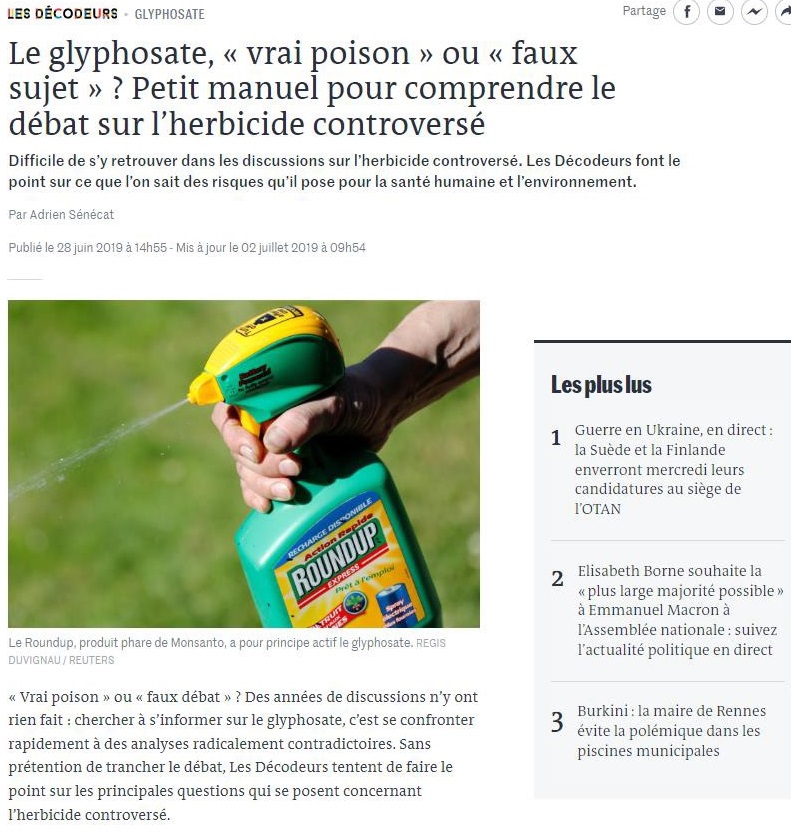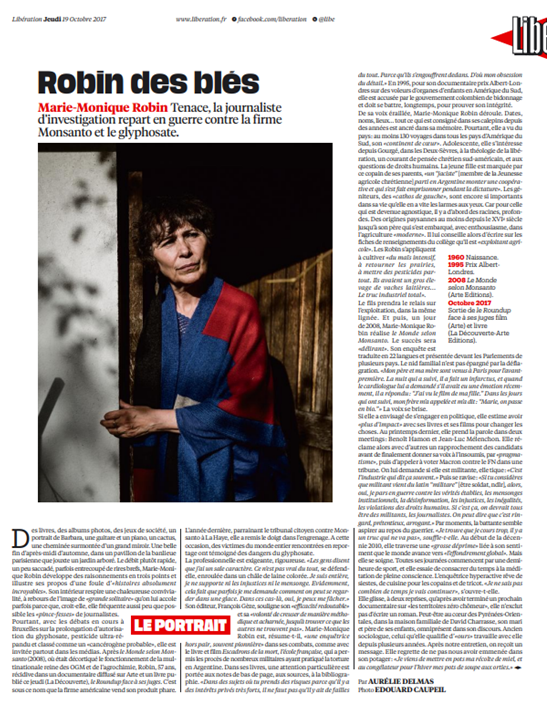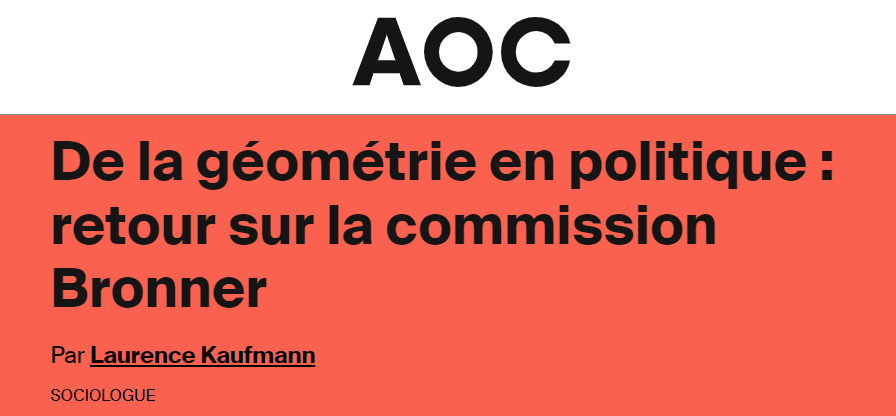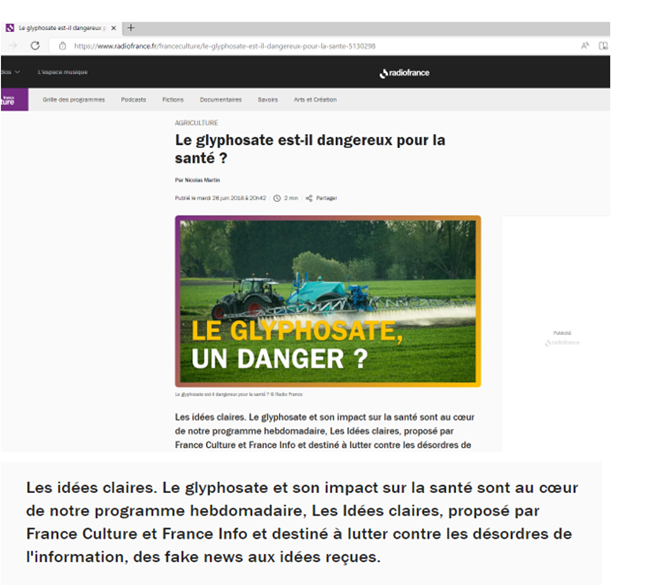Fake news is commonly recognized to be a direct generator of controversy as well as the “discursive events” (Calabrese 2018) that feed and structure it. The identification of fake news through media coverage then implicitly becomes the embodiment of critical thinking; along those lines, the act of identifying fake news turns into a set way of preserving the public’s ability to take stand on the democratic issues involved.
However, I wish to draw attention to the observation according to which, despite this apparently close relationship between controversy and so-called fake news, discussing a public controversy around that frame does not fuel the debate, but rather tends to neutralize it, on a political level.
If we take a quick look at a long running controversy which is related to a matter that a priori arouses the public’s interest and engagement – in this exploratory case, I will focus on the controversy around the herbicides containing glyphosate (sometimes known as the “Monsanto Roundup Controversy”) –, one can easily observe that, while the debate dates to the 2000s and refers back to the protests and concerns about GMOs, the media framing of this conflict shifts towards a “who-speaks-the-truth-and-what-are-the-unbiased-facts?” type of discussion around 2017-2019. The scientific controversy opposing expertise to counter-expertise from 2012 onwards, notably from the European Food Safety Authority (EFSA) and the International Agency for Research on Cancer (IARC, 2015), and punctuated by a series of cases and legal proceedings (the Monsanto Papers, Portier Papers, Seralni Papers), leads to a polarised period between the pro- and anti-glyphosates in the second half of the 2010s.

Depoliticizing Enunciative Register
Studying a sample of journalistic articles from the Belgian and French mainstream media, I quite distinctively notice that the media discourse reconfigures what is a public health controversy by requalifying the actors involved (1), by framing it through other scenarios (2) and by shifting the debate to different stakes (3).
1. It is striking that such a question about public policy is not raised in relation to broader concerns but is mainly confined to individualities or internal debate; the actors involved are often public figures portrayed as struggling within a (media) controversy.

2. Those discourses characterize the problem by largely mobilizing a confusion topos, shaping a regrettable blurring of true and false, affirming the need for clear demarcations – a type of defensive binarism that Laurence Kaufmann calls a “political line of assiduous boundaries” (I translate). The scenario is regularly that of a situation that needs to be properly structured in order to be understood, of actors whose sides and conflicts of interest need to be known in order to take a position.

3. The third discursive feature of this depoliticizing register has a status not far away from the presupposition: those texts focus the discussion on establishing the facts, with this underlying assumption that relying on factual truth serves as a guarantee for public consensus. This leads to the belief that the decision to be taken on the matter has only to be clarified and not really to be debated – which probably causes more disinvestment than reflexivity as it makes it look like there is no choice to exercise, no position to take, like there is no further interrogation to lead beyond the knowledge of the substance’s toxicity or carcinogenicity.

One can argue that those facts, on which we all have to agree to be able to hold a democratic and political debate, are a first compulsory step towards this quality public exchange and that no productive discussion or policy could be achieved without them. I could in good faith largely agree with such statement (nevertheless on a few conditions – including the basic idea that on every complex matter, the facts displayed undergo a selection). However, my point is that the mediatisation of the controversy being shaped by these discursive features, this type of media coverage comes to naturalize a single type of pragmatic relationship to information, that of being enlightened by the facts.
What type of reading attitude does that type of discourse tend to produce?
This problematization of the control of information a priori distracts the reader from questioning what he or she can or would do with such information, from realizing or constructing the worldview that must or will take up the given/revealed information.
Does this type of discourse lead to political disinterest or disengagement? I do not have an answer. What I would say is that it engages the reader in a relation to information that is limited in terms of critical agency. Facing a discourse which maybe oversimplifies those information issues, the reader, neither guided nor completely free to elaborate his own interpretation, mobilizes above all the norms, values, worldviews, argumentative and interpretative schemes that are already his or her own, that are already part of his or her background.
I am not saying that there should be no investigation into the legitimacy of the studies produced, I am simply saying that this particular focus tends to transform the way we address the matter by depoliticising it and providing little material for the reader to identify or reconsider his or her interpretations of that political issue. At worst, the reader remains in a position of an a-critical observer, at best she can simply be critical of what she considers to be a conflict of interest and at the best she is questioning whether transparency or conflict of interest is still a relevant criterion for validation or disqualification.
In the end, my question would be: doesn’t the recurrent thematization, by the formula « fake news », of what is called falsehood, lies, biased perceptions or expertise reports, also have a counter-productive effect? The mobilization of the “fake news frame”, as it symbolically refers to a certain ability of the citizen to be critical, runs the risk of becoming a puppet manifestation of that critical thinking. This ambivalence does not seem to open any path for a political reflexion or a critical complexification of the matter, but it rather produces a framing of the controversy that prevents one from engaging with it – on another level than that of the factual truth, that is a level which would come under the heading of political narration, confronting ideologies or the need for what Emmanuelle Danblon calls a “poetic vraisemblance”.
References
Calabrese, Laura. (2018). Événement discursif. Publictionnaire. Dictionnaire encyclopédique et critique des publics. Published online : 05/02/2018. Last modification 02/06/2021. URL: http://publictionnaire.huma-num.fr/notice/evenement-discursif.
Danblon, Emmanuelle. (2013). L’Homme rhétorique. Culture, raison, action,Paris, Les Éditions du Cerf. Kaufmann, Laurence. (2021). De la géométrie en politique : retour sur la commission Bronner. AOC media – Analyse Opinion Critique. URL: https://aoc.media/opinion/2021/12/02/de-la-geometrie-en-politique-retour-sur-la-commission-bronner/.

